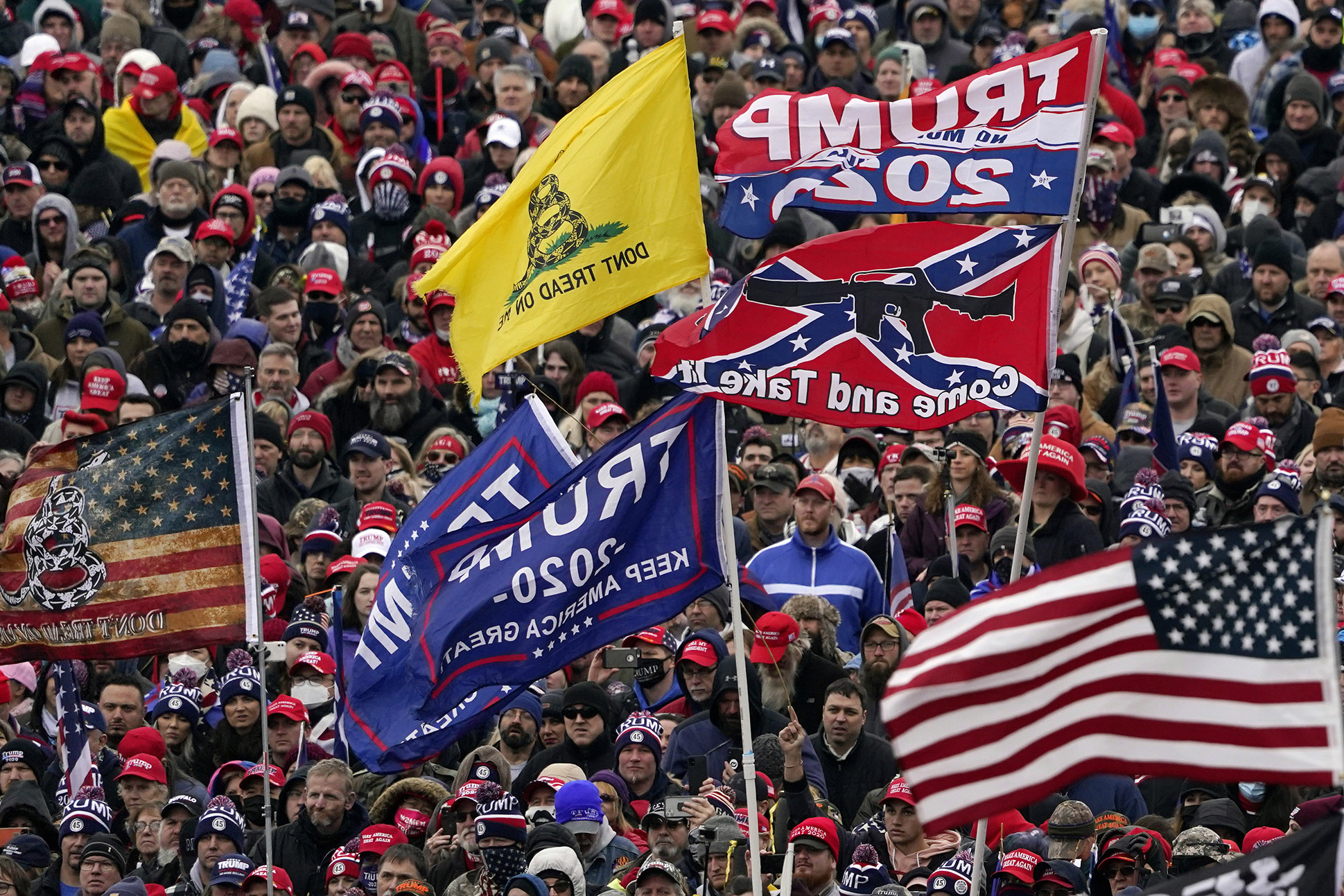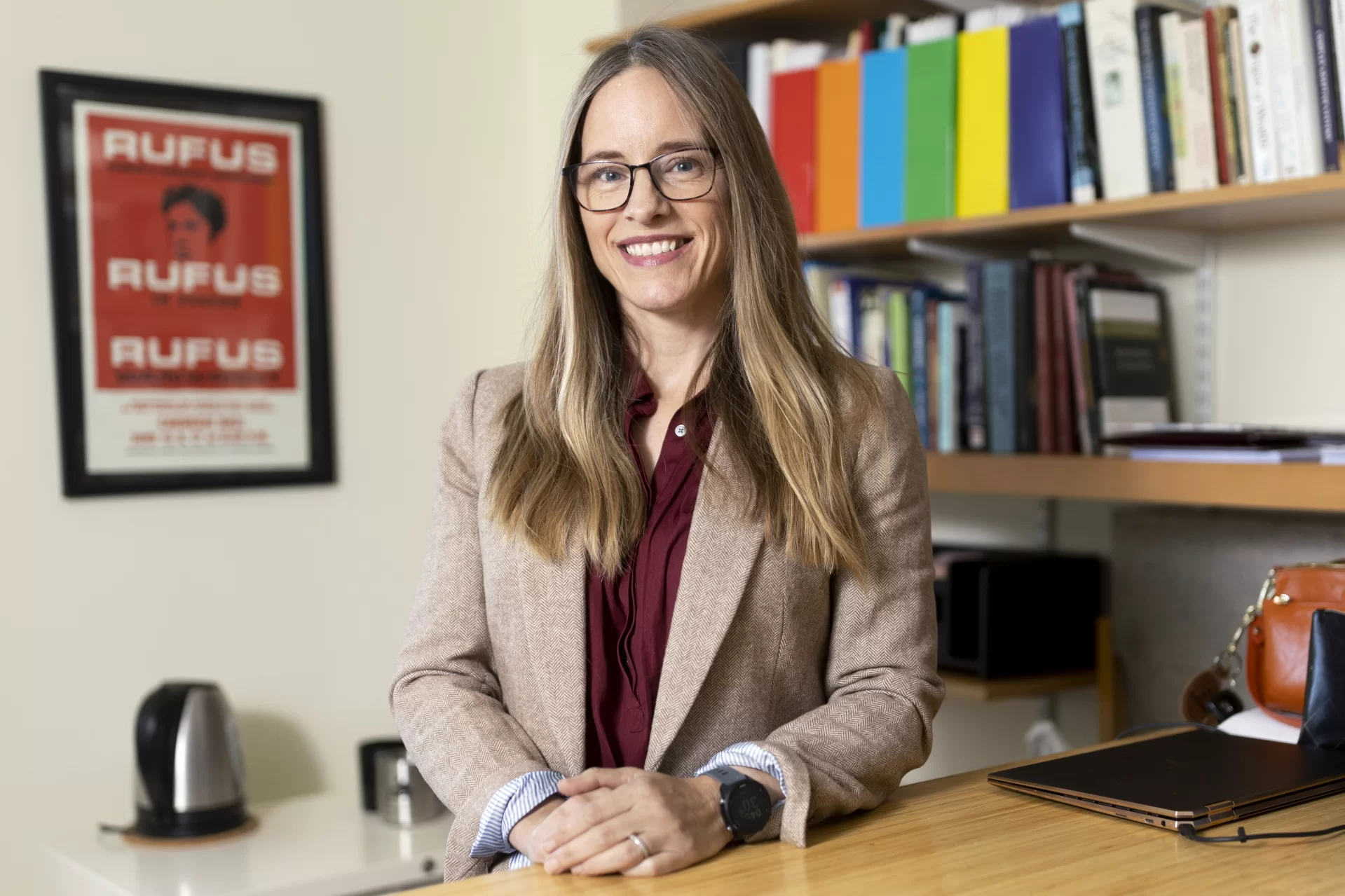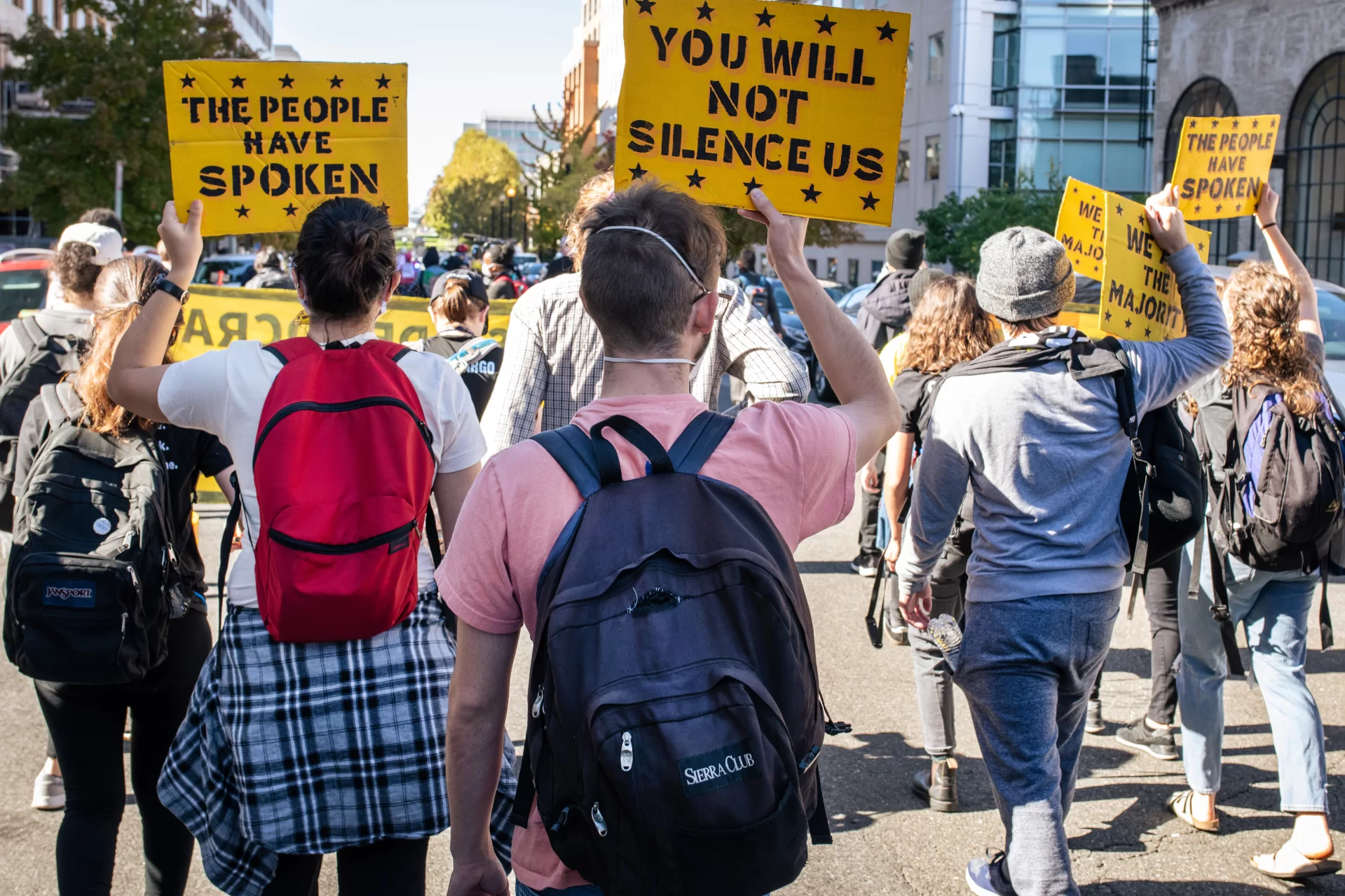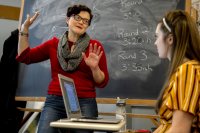
As they experienced the pandemic and its national response, the youngest generation of American voters shifted their thinking about what they want — and don’t want — from the federal government, according to new research co-authored by Bates Associate Professor of Economics Sandra Goff and published today in Contemporary Economic Policy.
Young Americans want the federal government to get bigger, according to survey data that Goff and her coauthors collected before and during the pandemic.
But at the same time, they’re now more distrustful of government, and they don’t want government to play a larger role in carrying out any of its various traditional duties, such as setting safe workplace standards, taking care of infrastructure, or advancing space exploration.

Titled “Support for Bigger Government: The Principle-Implementation Gap and COVID-19,” the paper was authored by Goff; Associate Professor of Economics John Ifcher of Santa Clara University; Associate Professor of Economics Homa Zarghamee at Barnard College; and two Santa Clara students, now alumni, Alex Reents and Patrick Wade.
Goff and her coauthors came to their conclusions after surveying a group of young Americans — college students at Barnard, Santa Clara, and Skidmore College, which is Goff’s prior institution — two times: once before the pandemic and once during the pandemic.
“It seems like students want some idealized form of government. They want government to do more — but they don’t really want the government to do more of the standard functions that they have been doing.”
Associate Professor of Economics Sandra Goff
In doing so, they saw shifts in their attitudes toward government during the pandemic.
“Students became more critical and less trusting of government, but they also wanted a bigger government.” Goff explains. “It seems like students want some idealized form of government. They want government to do more — but they don’t really want the government to do more of the standard functions that they have been doing.”
The “standard functions” of the federal government, which the survey respondents showed no increase in support for, are typically agreed-upon by researchers.
They are: setting fair and safe standards for workplaces; maintaining infrastructure; advancing space exploration; strengthening the economy; keeping the country safe from terrorism; helping people get out of poverty; protecting the environment; responding to natural disasters; ensuring that food and medicine are safe; ensuring access to health care; ensuring a basic income for people 65 and older; ensuring access to high quality education; and managing the nation’s immigration system.
Goff and her fellow researchers also found that respondents want the government to intervene more in markets, that is, to step in to protect citizens from unethical behavior by businesses or to safeguard the environment.

Goff explains that the gap between what the respondents say they want and what they will support is “an example of a ‘principle-implementation gap.’” Such gaps, between what people say that they want and what they’re willing to support “have been seen in the prior work by others,” Goff says. For example, white Americans accept equality as an ideal yet often reject interventions designed to achieve that ideal.
Goff and her colleagues have no neat answer to why the gap exists, but they do believe that what they found among these young college students is likely to “persist over time.” And though the survey was directed at one young age group — so-called Generation Z — “it still provides important insights: that young, educated people throughout the U.S. are discontent with government, see a strong role for government, yet are unsure of exactly what that role should be,” says Goff.
As is often the case in research, Goff and her colleagues didn’t set out to learn about changing attitudes toward government, pre- and post-pandemic. After all, they didn’t know a pandemic was coming when they initially surveyed their students, in December 2019, to “determine the effect of taking an introductory economics course on market and government attitudes.” An experimental and behavioral economist, Goff’s primary area of interest is in using computational models and experimental methods in the lab and field to explore prosocial economic behavior.
“There are studies that have shown that economics instruction can cause people to behave more selfishly,” Goff explains. “We wanted to see if taking an introductory economics course caused students to become more pro-market or less supportive of government.”
COVID sidetracked that line of inquiry, but opened another. “We had these initial survey responses, and then COVID happened,” she says. “We thought it would be interesting to see if the pandemic changed the way people felt about government and markets.”
Goff grew up in Livermore, a town a few miles north of Bates and, like Lewiston, located on the Androscoggin River, which was horribly polluted before the federal government intervened in a big way, thanks to the Clean Water Act of 1972, passed 50 years ago this week due to the efforts of U.S. Sen. Edmund Muskie ‘36.
Muskie grew up in Rumford, which is also on the Androscoggin. “As a fellow Maine mill town resident, I’m obsessed with Muskie,” says Goff, who admits to having one of his old wooden chairs. “My grandmother purchased it from a yard sale he was having back in the day.”
Perhaps, Goff continues, a reimagining of what government can do is happening now — giving survey respondents something to support.
Landmark examples of what the federal government could do, the Clean Water and Clean Air acts are instructive in the present moment, suggests Goff.
“They are great examples of what was, in their time, a break with the past and a reimagining of what government can do,” she explains. Perhaps, Goff continues, a reimagining of what government can do is happening now — giving survey respondents something to support.
“Perhaps we are seeing it with the climate and green energy aspects of the Inflation Reduction Act. Perhaps, in these moments of crisis, people are looking for bold, moral leadership from the government.
“Could that be the thread that ties together the sweeping changes that we have seen in the past in response to crises? Are people looking for government action that matches the intensity of the crisis, and when they don’t see that intensity, are they simultaneously disappointed with government and wanting bigger government?”




